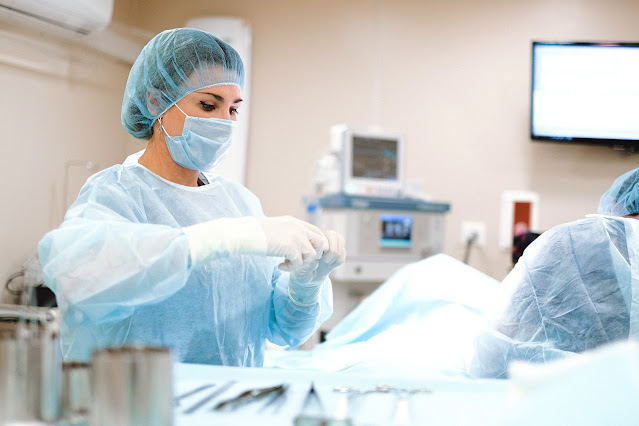Obesity is a worldwide health issue affecting millions of people, both physically and psychologically. If traditional methods fail to shed excess weight, bariatric surgery could be life-altering—popular weight loss surgeries include gastric bypass and gastric sleeve procedures. Each procedure offers unique advantages and disadvantages that should be carefully evaluated according to your circumstances and medical advice before choosing which option may work best for you.
In this article, we'll look at both gastric bypass and gastric sleeve surgery to help you make an informed decision about which option would be most suited to you.
Gastric Bypass Surgery
Gastric bypass surgery is one of the oldest and most successful weight loss surgeries available today. This procedure involves creating a smaller stomach pouch by dividing the stomach into two sections and redirecting its small intestine to connect to this newly formed pouch. Here are its pros and cons:Pros of Gastric Bypass Surgery
There are many notable benefits of undergoing a gastric bypass procedure. Firstly, it leads to significant and swift weight loss, outpacing many other bariatric procedures. Within one year of surgery, patients typically see significant weight reduction.Gastric bypass surgery has an impressive impact on hormones responsible for appetite regulation, leading to reduced hunger pangs and food cravings—two key elements in any weight loss effort. Long-term studies have also demonstrated its success at maintaining weight loss over time, making this procedure an appealing solution for individuals searching for lasting solutions for obesity.
Cons of Gastric Bypass Surgery
Gastric bypass surgery presents several challenges and potential drawbacks. Because patients lack part of the small intestine where nutrients are absorbed, they are at higher risk for nutritional deficiencies, including iron, calcium, and vitamin B12. Therefore, lifelong supplementation with essential vitamins and minerals such as these is vital, along with close monitoring.In addition, gastric bypass surgery differs from other weight loss procedures in its increased complexity and potential risk of complications both during surgery and the subsequent recovery period.
Another concern is the occurrence of dumping syndrome in some patients. This syndrome manifests with symptoms including nausea, sweating, and diarrhea after the consumption of sugary or high-fat foods. Managing these discomforting symptoms often necessitates dietary adjustments.
Rapid weight loss through gastric bypass surgery increases the risk of gallstone formation and may necessitate its removal. Thus demonstrating why careful consideration must be given to potential side effects and complications associated with the procedure.
Gastric Sleeve Surgery
Pros of Gastric Sleeve Surgery
Gastric sleeve surgery offers several advantages. For instance, it has proven extremely successful at aiding weight loss by restricting how much food an individual can consume, leading to significant and sustainable weight reduction. Furthermore, it's a much simpler procedure compared to gastric bypass, which may result in shorter hospital stays and quicker recoveries for many patients.As opposed to gastric bypass, gastric sleeve surgery does not involve rerouting the digestive tract and thus may reduce worries over nutritional deficiencies. However, ongoing follow-up and diet adherence remain key elements.
Moreover, individuals who undergo gastric sleeve surgery frequently report an improved quality of life, marked by enhanced mobility, reduced joint pain, and increased self-confidence as they experience the positive effects of their weight loss journey.
Cons of Gastric Sleeve Surgery
Gastric sleeve surgery comes with its share of drawbacks that need to be carefully considered. This procedure tends to produce slower weight loss results and may not achieve as rapid or significant weight reduction, increasing your chance of gastroesophageal reflux disease (GERD). However, this concern can often be effectively managed through lifestyle adjustments or medication.Another significant aspect to bear in mind is that gastric sleeve surgery is irreversible. A portion of the stomach is permanently removed during the procedure, making it essential to weigh the consequences of this permanent alteration before proceeding.
While gastric sleeve surgery does impact hunger-regulating hormones to some extent, it doesn't have as comprehensive an effect as gastric bypass surgery. Subsequently, some patients may still experience strong sensations of hunger after surgery, an experience which may interfere with their healing journey.
Final Thoughts
As with any weight loss procedure, gastric bypass and gastric sleeve, both present their own set of advantages and disadvantages. At the end of the day, your final choice of weight loss approach depends upon your circumstances and goals. When making important decisions like these, always seek assistance and support from qualified healthcare providers throughout your weight loss journey.Success ultimately rests with you taking an active part in leading a healthier lifestyle alongside medical supervision.








.jpg)






